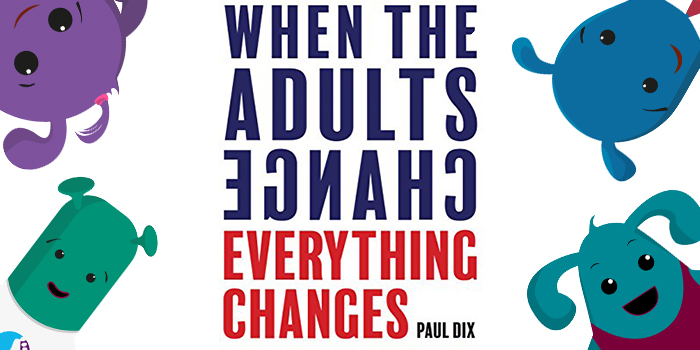As the title suggests, this book focuses on what we as adults can change to improve the behaviour of students in any classroom; admittedly this may be best suited to long-term and permanent teachers. However supply teachers and cover supervisors can certainly still take some invaluable information from the ideas professed here.
Essentially the key message is to always remember that you’ve been through your teenage years, learnt from them and now have a hold on your emotions and behaviour, whereas a school student might not necessarily be able to control their behaviour as well; not to mention the fact that in any interaction with a student you’re always 100% in control of your own actions only.
With that comes the following key mantras:
Be creative and be kind – ask yourself if punishment is really the best course of action, perhaps you’d do better to provide a stimulating task to avert attention from the misdemeanour.
It’s all about the culture you create – your behaviour influences the students’ behaviour, so be polite, friendly and helpful and the students will follow.
Consistency is key! When you get to a new school, study the behaviour policy and know what to do if students misbehave – if you deviate you may find either a negative reaction, or none at all.
Non-verbal behaviour cues are very important – exercise authoritative body language and be expressive with your face and eyes rather than with your mouth.
Remove the ‘them and us’ ideology immediately! Students are humans, too, so acknowledge that they’ll have bad days and bad moods just like you will – this will allow you to connect on a better level with the students and get them on your side a lot quicker and with more success.
Greet students at the door and in the corridors where possible – friendliness goes a long way!
Repetition is key, repetition is key, repetition is key, repeti… reinforce expectations in the classroom by repeating behaviour policies and rules of conduct when needed; but don’t become a broken record!
Speaking of repetition – don’t be unnecessarily aggressive when students misbehave, always always always remember that they have a life outside the classroom and this may not be the happiest or even the safest and this can massively affect a student’s behaviour. Be calm and empathetic and you’ll be rewarded in kind (most of the time).
Stay rational, not reactional – have an idea of how you will deal with certain behaviours prior to working in schools, so that you know what to do when situations arise and you aren’t reacting with improvised behaviours when faced with challenges in the classroom.
Pace your punishments – don’t punish severely right away, or you may lose control quickly!
Recognise and appreciate good behaviour and effort from all students – for some this will be quietly working on-task for the lesson and others this will be as simple as taking off a coat.
Try to structure behaviour-management routines in groups of threes – work on three behaviour points at a time; if you try to do too much at once you might lose direction and be ineffective.
It’s not necessarily what you say, but instead how you say it – be sensitive but firm.
Try to remember that difficult students need people, not punishments – teach them how to behave and work with them to improve, rather than jumping to penalise.
Behaviour and classroom practices should be inclusive, not exclusive – difficult students need stimulation, so before you exclude them from classroom activities, think of how they might actively participate first as this might help their behaviour throughout the rest of the lesson.
Think like the adult and be the adult– demonstrate and commend good behaviour always.
If you’re wrong, be sure to apologise and try to avoid forcing students to apologise as they may well refuse just for the sake of refusing, which can lead to you losing authority in the room.
Exude positivity always – remaining calm helps you smile more and smiling is a good thing!
Ignore the labels and classifications a class may have before you walk in – you can have a great day with the school’s toughest class and an awful day with their best! Every student deserves the same positive and supportive attitude despite prior warnings you may receive.
Be adaptable, like a chameleon… what works in one school might really not work in another.






.png)
.png)
.jpeg)